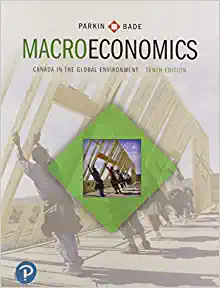Answered step by step
Verified Expert Solution
Question
1 Approved Answer
After Hurricane Katrina in 2005, the government offered subsidies to people whose houses were destroyed. How does the expectation that the government will offer subsidies

After Hurricane Katrina in 2005, the government offered subsidies to people whose houses were destroyed. How does the expectation that the government will offer subsidies for future major disasters affect the probability that risk-averse people will buy insurance and the amount they buy? Use a utility function for a risk-averse person to illustrate your answer. (Hint: See Solved Problem 16.5 for example, included below)
Solved Problem 16.5

Step by Step Solution
There are 3 Steps involved in it
Step: 1

Get Instant Access to Expert-Tailored Solutions
See step-by-step solutions with expert insights and AI powered tools for academic success
Step: 2

Step: 3

Ace Your Homework with AI
Get the answers you need in no time with our AI-driven, step-by-step assistance
Get Started


